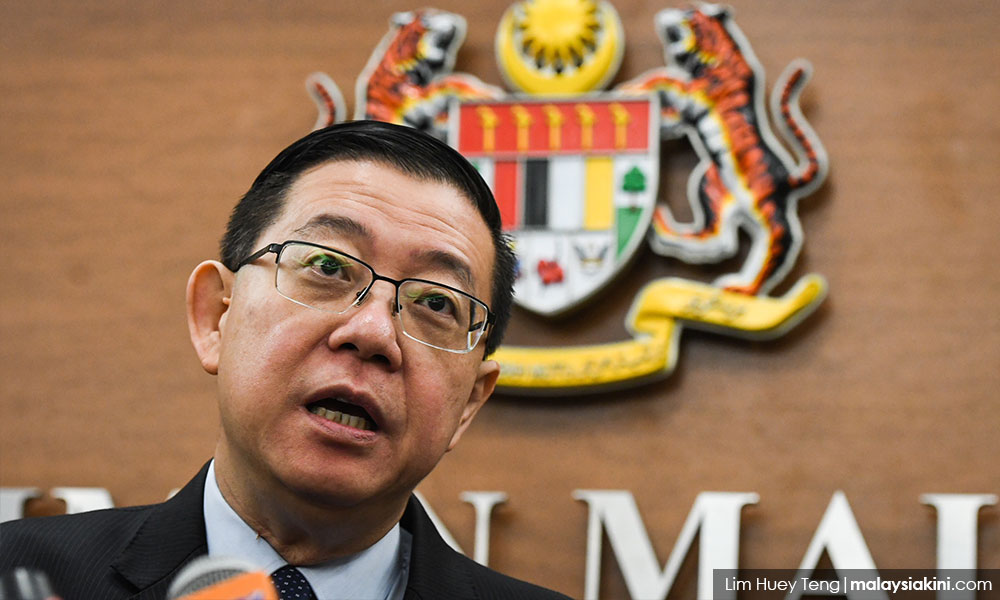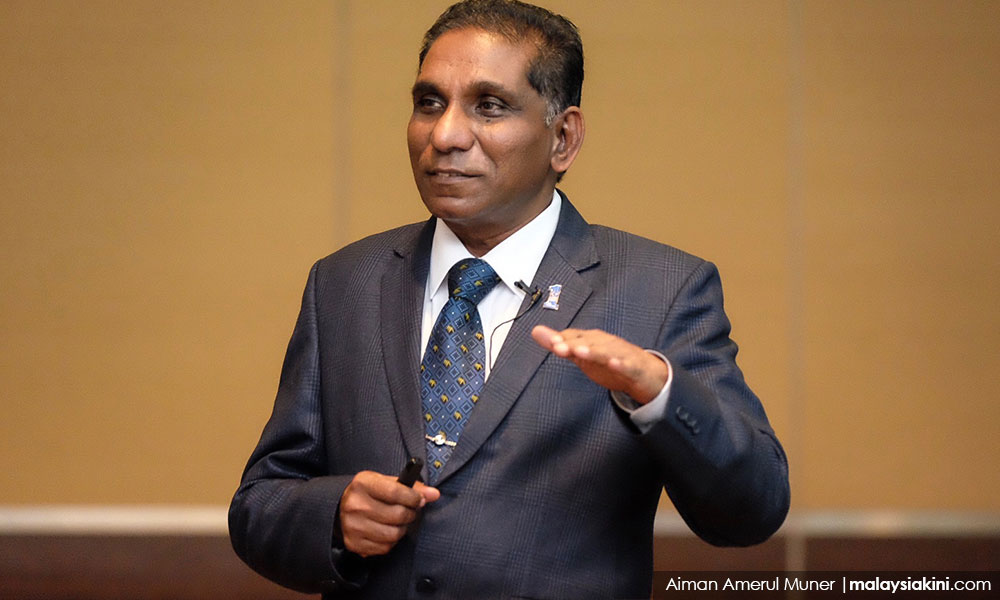
QUESTION TIME | Another shocking accusation has been hurled against the previous BN government by Finance Minister Lim Guan Eng in Parliament on Aug 8, alleging the government robbed from GST refunds, not long after he accused it of having run the national debt up to over RM1 trillion instead of the officially announced RM687 billion.
"I want to say here, it was not robbing GST, but robbing from GST refunds," Lim thundered in the Dewan Rakyat when winding up debate on the Sales Tax Bill 2018 on Aug 8.
"This is a serious robbery where money which was supposed to be in trust funds was not in those funds. How can the government now pay those refunds when the money is not there?"
A day later, he gave his figures in Parliament for this - GST refunds amounted to RM19.4 billion but there was only some RM1.486 billion in the accounts, indicating some RM18 billion was missing from the trust account.
Yesterday in Parliament, he clarified that his ministry had made a mistake with the figures on the shortfall in the trust account and that the shortfall was actually higher than previously disclosed, amounting to RM19.248 billion instead of RM17.911 billion.
Lim said the mistake was due to a decimal error made by an official of his ministry.
But was Lim lying when he said it was a robbery, as he did with the earlier accusation of a debt of over RM1 trillion? And if so why?
One needs to look at what are GST refunds first. The GST is an incremental tax, the tax is paid only on the value-added in the production process. This is done when the sale is made or soon after.
Those who pay the 6%, then claim a refund on the inputs on which GST has already been paid. This takes some time to process and to establish before the refunds are made. Sometimes there are disputes.

A day after Lim said RM18 billion was missing, Customs director-general T Subromaniam (photo) said from April 2015 (when GST was imposed) until the end of May 2018, the amount of refunds claimed totalled RM82.9 billion but of that amount, only RM63.5 billion was paid out during that same period.
"The Customs Department had requested RM82.9 billion from the (government's) monthly trust fund for the purpose of GST refunds from April 1, 2015, to May 31 2018, but the full amount was not transferred (from the government's consolidated accounts) to the trust fund.
"As such, as of May 31, 2018, the trust fund still needs and is experiencing shortages to pay back RM19.4 billion in GST refund arrears," Subromaniam said in a statement, adding that the monthly trust fund meeting was chaired by the secretary-general of the Treasury.
From this, two things are clear - first, the government has made payments of RM62.5 billion from April 1, 2015, when GST was imposed on May 31, 2018, out of the RM82 billion in refunds claimed, that is over three quarters of the claims have been paid over the three years and one month that the GST has been in force.
Second, as a matter of procedure, the GST collected first went into the government’s consolidated revenue account and the amounts were transferred from there to the GST trust fund account monthly. So where did the “robbery” take place? Is putting money in the consolidated fund instead of the GST trust fund “robbery”?
Dried up completely
Lim’s contention of "robbery" was immediately countered by former Treasury secretary-general Mohd Irwan Serigar Abdullah (photo) and former prime minister and finance minister Najib Razak who pointedly asked why it took Lim three months to find out about this.

One newspaper quoted Irwan as saying: “The Treasury allocates to the GST trust account monthly based on the amount required by the Customs Department and the financial position of the government.”
The inescapable conclusion from this is that the money was not stolen but was merely transferred into the government’s consolidated fund.
Is this wrong as alleged by Lim? Section 54 of the GST Act 2014 provides for the establishment of a fund for goods and services tax refunds. But Section 54 (5) says clearly: “Notwithstanding subsection (2) and the provisions of the Financial Procedure Act 1957, the Minister may authorise the payment into the Consolidated Revenue Account in the Federal Consolidated Fund of all or part of the money of the fund.” Subsection (2) authorises the minister to put GST collected into the refund fund.
One can say it would have been more prudent to keep the money in the GST trust fund account but to allege “robbery” is over the top - it is plain untrue unless Lim can prove that the government has embezzled - embezzled, not wasted - that RM18 billion.
Considering that elections ended on May 9, and a caretaker government was in place for the earlier part of May and the new government took over on May 12, it would look like it would be the responsibility of the new Pakatan Harapan government to allocate the funds for the payment of GST refunds for May, not Najib’s BN government.
So why is Lim alleging a robbery that wasn’t? That may be because the government does not have the money to pay for the refunds even now, some two and half months after May 31, 2018.

And why is that? Because Lim granted a populist tax holiday from June 1 to Aug 31 this month - not only was there no GST collection for the three months, there was no sales and service tax (SST) collection either. If the country collects say RM50 billion in GST this year (last year it was RM44 billion), then three months of foregoing GST without a compensating SST works out to RM12.5 billion (RM50 divided by 4).
But it is likely to be more than that because of accelerated purchase of all consumer items which would be affected later by the imposition of SST from next month. The direct revenue loss in these three months alone would probably be higher, say RM15 billion.
The previous government paid out GST refunds from income received from ongoing tax collections. With that having dried up completely, perhaps Lim is finding out he can’t find the money to pay for refunds and he may have to borrow. One way out of this predicament is to simply blame the previous government, of course.
The worst thing the Harapan government has done to date is to abolish the GST, which was neither responsible for rising prices nor affected the livelihood of the poor because almost all items they consumed were zero-rated. But to compound the matter, they did this in indecent haste.
Lim and Harapan are finding out that there are grave implications when you cancel a recurrent revenue generator such as the GST which has provided a valuable new source of income while taxing those who consume more.
Some of these can also be quite unanticipated but that does necessarily mean it is the previous government’s fault.
P GUNASEGARAM says that sometimes things are not what they seem. Email: t.p.guna@gmail.com -Mkini



No comments:
Post a Comment
Note: Only a member of this blog may post a comment.